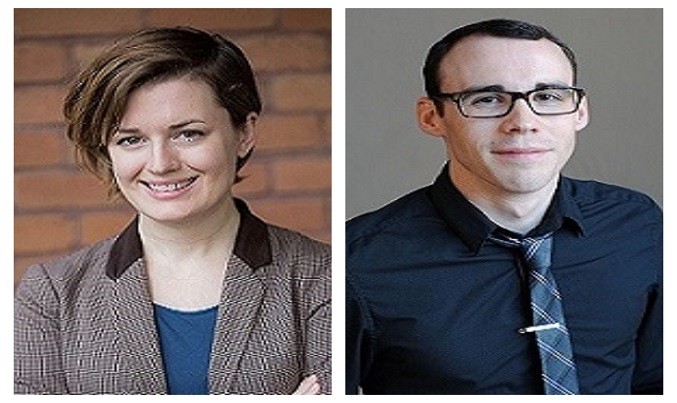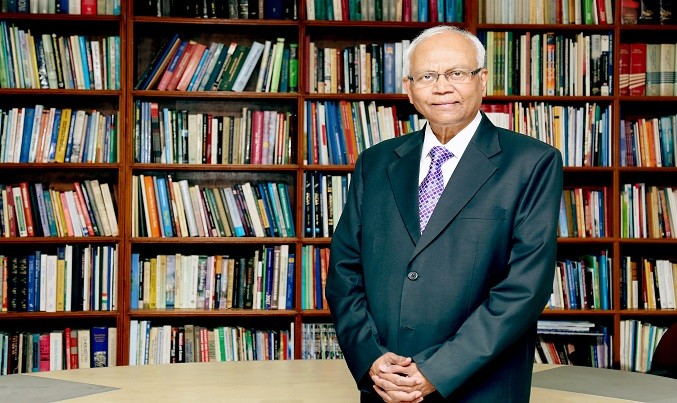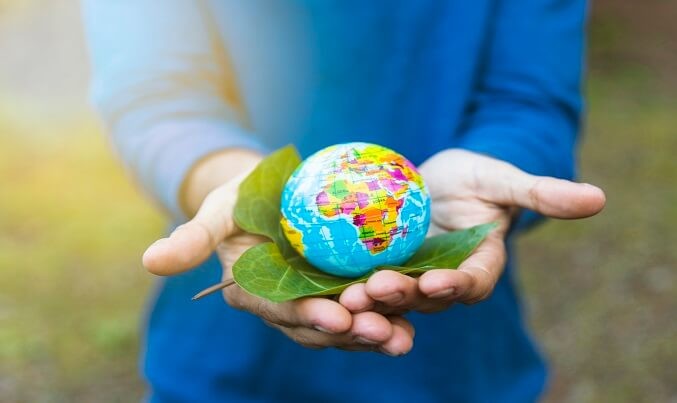Everything Change: An Anthology of Climate Fiction is but one of the projects of the Imagination and Climate Futures initiative of the Arizona State University. iMPACT catches up with Angie Dell, associate director, Virginia G. Piper Center for Creative Writing and Joey Eschrich, editor and program manager, Center for Science and the Imagination, to know more.
- What does Everything Change: An Anthology of Climate Fiction aim to do?
Our goal is to make the effects of climate change, which are often creeping, pervasive, and slow-moving, more visceral and emotionally immediate for our readers. We think stories are the best way to do this: they help us see the world through the eyes of people whose experiences and ways of being are very different from our own, and they root the sprawling, global, often abstract-seeming effects of climate change in actual, tangible places and communities around the globe. The story that won our grand prize this year, “Monarch Blue” by Barbara Litkowski, exemplifies this power of stories by rooting the effects of climate change in a specific region and zeroing in on the experiences of multiple marginalized women working on the dirty, exploitative front lines of human adaptation in the face of environmental degradation.
In our introduction to the anthology, we write that climate change is both multifarious and monolithic. Individual stories can help make climate change more visible, comprehensible, and urgent as a destructive force affecting particular people in specific places. At the same time, we hope that collections of stories like Everything Change emphasize that we’re all living through the same catastrophe and that all local climate struggles have the same root cause. We need to recognize all of the disparate, unique effects that the climate crisis has on the Earth and on human life, but we also need collective action at a massive scale to survive. We think stories can be a force for building empathy, bolstering understanding, and catalyzing conversations that lead to action.
- Amitav Ghosh’s book “The Great Derangement” talks a lot about the role of literature in framing the conversations surrounding the environment, but how possible is it in practice? How can fiction help mitigate climate change, especially speculative fiction (if at all)?
It is clear that our inability to act on climate change is largely rooted in our feelings of disempowerment, a lack of imagination, and the prioritization of the individual over the collective; and these deeply-rooted ways of thinking cannot be unraveled by statistics and facts alone, because they’re so easy to deny or conceal.
Storytelling is one of our greatest tools for communicating emotional truths and illustrating the human condition. While we can’t predict just how effective storytelling will be in compelling us to action, it at least offers a path towards action through emotional resonance and narrative example. Speculative fiction that places tangible solutions within the often upsetting and frightening stories we must tell about climate change stands a chance to help us imagine the unimaginable within the context of the familiar: day-to-day emotions, conflicts, actions.
- One aspect of climate change and future is always the apocalyptic nature of the discourse. While the concerns might be true, in terms of imagination and fiction, it also puts away a lot of readers who are looking for life-affirming endings and an escape from reality. How do you situate fiction that touches and enlightens, within this framework?
Climate fiction is certainly often a pessimistic genre, as it inevitably focuses on what we’re losing to climate chaos and how climate change affects people’s lives, introducing new stresses and exacerbating existing inequalities. But more hopeful strains of thinking are often present in these stories, when people apply their ingenuity to tricky problems or tough situations, or when mutually supportive communities form in times of crisis. In Rebecca Solnit’s book A Paradise Built in Hell, she documents how groups of people across cultures and throughout history react to disasters by pulling together, sharing resources, and taking care of one another—quite a contrast to the hellish imagination of popular apocalypse stories like Mad Max and Cormac McCarthy’s The Road. You see that dynamic in a number of our stories, with moments of connection blossoming in the most trying circumstances. The destruction wrought by climate change is also an opportunity to apply human ingenuity to a whole new set of problems and to form new kinds of communities and networks of collective action.
- How has the experience of the contest been, so far? What are you seeing in terms of the concerns of writers from the developed nations vis-à-vis those that are traditionally seen as on the path to development? Perhaps you can explain with specific examples of the themes you’ve noticed.
One thing is strikingly similar with regard to “more developed” and “less developed” settings: in these stories there is little confidence in national infrastructures that are meant to manage disaster and trauma. And though the winners of the contest hail from many different countries, their concerns and approaches are often quite similar, particularly with regard to class divisions that inevitably widen in the face of disaster and response. No matter how wealthy a country or community is, a lower class will emerge to get pushed closest to the trauma and face the greatest risk of being left behind—it’s a concern we see a lot in these stories, and one that is difficult to imagine solutions to. Whether the governing body in question has a great deal of resources, as with the wealthy underwater haven depicted in “Darkness Full of Light,” or not, as with the impoverished disaster-tourism hub in “The Last Grand Tour of Albertine’s Watch,” the stories’ sources of hope usually stem from the individual and the smaller community—focusing on the more intimate and personal boundaries that must first be crossed before larger steps can be taken. Short stories can often feel limited to a very small world—even the very confined experience of the narrator alone—so it’s heartening to see “the collective” emerge more presently in the submissions we received.
- How can some of the concerns of the “developing world” be better reflected, as more than 80% of the world lives in these countries? While it might not be possible in an English-language setting, what lessons/advice might your initiative have for other languages, especially underrepresented languages?
We think some of these solutions lie in publishing. For so long, major publishers have been wary to accept and market international writing, and readers have not been taught or challenged to seek stories that feel more distant from their own experiences, and some are even wary of reading stories in translation. We need to keep calling out publishers for privileging the same perspectives over and over, and support those who are publishing new voices and a more diverse and multi-lingual representation of authors and stories.
For the Imagination and Climate Futures Initiative, we approach this very simply, inviting submissions from everywhere. Diversity of perspective—geographical and in terms of the experiences and identities of our authors—is a huge asset in trying to get our collective head around climate change, its effects, and how we might respond to it. Judging the entries blind at every stage is also an important part of our process, to reduce the chances of unconscious bias affecting the process of deciding what ends up in the anthology. We hope that this helps to bolster the inclusion of historically underrepresented voices in our collections.
It’s worth noting that we also have the advantage of not trying to sell our anthology, so our goal is just to get this work out there in front of a larger and more diverse audience. We’re not under the same constraints as many publishers, especially small ones, to turn a profit.
- What’s next for the Imagination and Climate Futures Initiative?
In addition to the climate fiction contest, we host an annual Imagination and Climate Futures Lecture. In previous years, lecturers have included the novelists Margaret Atwood, Paolo Bacigalupi, and Kim Stanley Robinson, and the nonfiction writer and journalist Elizabeth Kolbert. This year’s lecture will be on April 18 at Arizona State University in Tempe, by Omar El Akkad, a journalist whose first novel, American War, is a grim, character-driven look at conflict in a near future United States shaped by climate chaos. We’d also like to do more work with writers—that might mean another contest, or other projects with climate fiction, like commissioning stories or publishing smaller pieces of fiction or hosting writing groups or events. You can keep tabs on our work at our website, climateimagination.asu.edu, or email us at imagination@asu.edu if you have ideas for writing projects that you’d like to see us experiment with.









